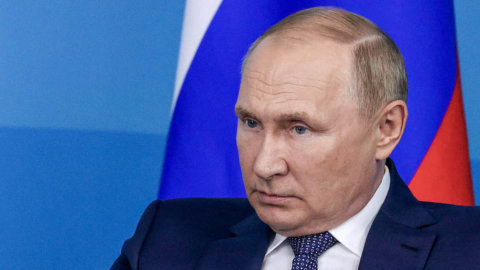The Council of Energy Ministers, convened on an extraordinary basis in Brussels, would appear to be close to an agreement on the gas contingency plan of the EU. The turning point would be at hand after several meetings of the ambassadors of the member states, looking for derogations, exemptions and loopholes, making excuses to justify the fact that their countries should not be subject to the reduce gas consumption by 15%.. The risk is that any resulting deal will be too "watered down" to meet the main goal: saving the 45 billion cubic meters of natural gas needed to face a colder-than-average winter, should Russian supplies end. According to some, the version reworked by EU countries should reach "almost" the same volumes, while for others the total would be closer to 30 than 45 billion m3.
Pushing to find a balance between the 27, the Gazprom decision to further reduce supplies to Germany via the Nord Stream 20 pipeline by 1%.
The effect of the new Russian diktat on prices was immediately evident. Gas futures on the Amsterdam stock exchange jumped by more than 7% (above 190 euros per megawatt hour). Hence the need to send a clear signal to the market.
EU gas emergency plan: the NO front
European Union countries are trying to soften the bloc's plan that requires them to use less gas, as Europe prepares for a winter of uncertain supplies from its main supplier, Russia.
Last week the European Commission proposed that the 27 EU member states each cut gas consumption by 15% from August to March. The target would be voluntary, but the Commission could make it mandatory in an emergency.
But the gas plan of theUE it has met resistance from a number of governments, some of which have opposed cuts and others are unwilling to let Brussels control their energy use. Among those who opposed the Commission's original proposal are Greece, Portugal, Ireland e Cyprus – the very countries that felt the full brunt of Germany's inflexible fiscal rectitude during the great eurozone crisis a decade ago. After lecturing indebted nations about the need to live within their means and possibilities, Germany is now the country most struggling with Gazprom's ongoing cuts via Nord Stream.
But also Spain, Hungary, Poland e Italy they would be against the plan and in particular the excessive powers that the Commission attributes to itself, as well as the percentage of the reduction itself (considered too high) and, lastly, the linear cut in consumption without taking into account national differences.
Nonetheless, some diplomats present at Monday's debate said that there was a spirit of solidarity – including with the Germany – and a prevailing feeling that Europe must stand united in the face of threats from Russia. Several diplomats have expressed optimism that the agreement - which can be approved by a qualified majority, ie by 15 countries representing 65% of the bloc's population - can be reached, despite the residual concerns of some.
Other diplomats have expressed fears that the proposal falls short. EU countries have so far cut their combined gas consumption by just 5%, despite months of soaring prices and shrinking supplies from Russia.
The Plan (revised): here's what could change
In the latest draft of the text, the 15% cut in consumption remains formally the same for everyone and mandatory in the event of an emergency. But with exceptions. Meanwhile, the power to call the "alert" would no longer be in the hands of the Commission. The European executive, or alternatively at least five Member States, can propose the emergency phase, but this must in any case be approved by a qualified majority by the EU Council.
To reassure Italy, the text also contains a reference to the Commission's work on the ceiling on the price of gas. Furthermore, it would seem that the contingency plans will not have to be presented in Brussels by the end of September, but by 31 October.
The Council has also decided that this scheme will last just over a year and not two. The period runs from 2022 August 31 to 2023 March XNUMX. But consumption will also discount, especially for large industrial countries, the gas used for the iron and steel, chemical, petrochemical, glass and non-metallic mineral products industries. Storage has been excluded from the account for gas consumed. And there are too derogations for Eastern countries, the Iberian Peninsula (therefore Spain and Portugal), Malta and Ireland, i.e. the nations disconnected from the European network.





